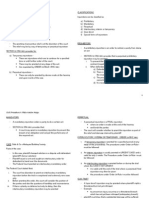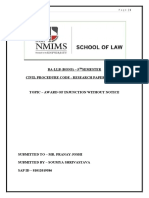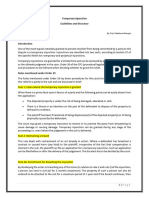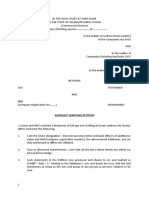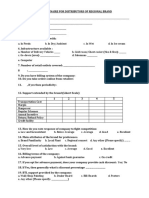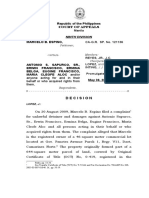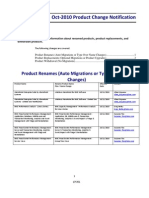0% found this document useful (0 votes)
192 views2 pagesInjunctions: A Legal Guide
The document discusses different types of injunctions including: prohibitory injunctions that forbid certain acts; mandatory injunctions that command positive acts; interlocutory injunctions granted before trial; perpetual injunctions granted after trial; and ex parte injunctions granted without notice to the other party. It also outlines the procedures for obtaining interlocutory injunctions, distinguishing between non-urgent cases where the plaintiff must commence an action first versus urgent cases where the plaintiff can apply for an ex parte injunction immediately without prior action.
Uploaded by
Ellyana JreenCopyright
© © All Rights Reserved
We take content rights seriously. If you suspect this is your content, claim it here.
Available Formats
Download as DOCX, PDF, TXT or read online on Scribd
0% found this document useful (0 votes)
192 views2 pagesInjunctions: A Legal Guide
The document discusses different types of injunctions including: prohibitory injunctions that forbid certain acts; mandatory injunctions that command positive acts; interlocutory injunctions granted before trial; perpetual injunctions granted after trial; and ex parte injunctions granted without notice to the other party. It also outlines the procedures for obtaining interlocutory injunctions, distinguishing between non-urgent cases where the plaintiff must commence an action first versus urgent cases where the plaintiff can apply for an ex parte injunction immediately without prior action.
Uploaded by
Ellyana JreenCopyright
© © All Rights Reserved
We take content rights seriously. If you suspect this is your content, claim it here.
Available Formats
Download as DOCX, PDF, TXT or read online on Scribd
/ 2


